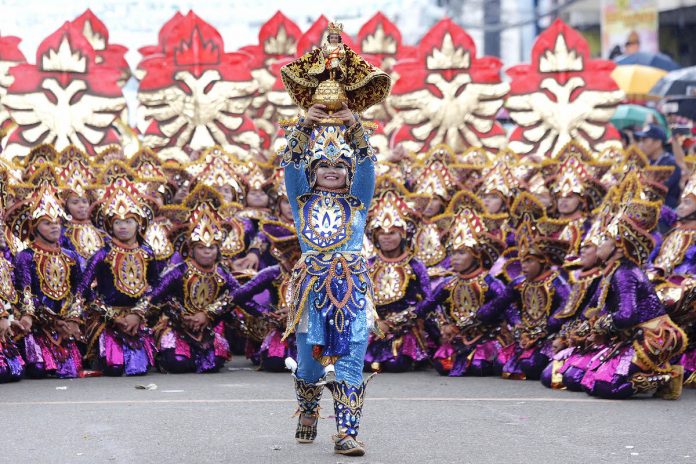Filipinos are “visual” people when it comes to faith and history who like to tell stories by acting them out during festivals.
After three years of being in hiatus due to the COVID-19 pandemic, Aliwan Fiesta returned this year as streets along CCP Complex on July 13-15, 2023, were filled with loud music and performances that showcased richness and diversity of Philippine festivals.
Since 2003, Aliwan has been a three-day grand fiesta that brings together Metro Manila contingents from different regions, provinces, cities, and towns with the best cultural street dances, floats, and Reynas search.
Dubbed as the “Mother of All Fiestas,” Aliwan comes from the word “aliw”, which means entertainment. It is usually held during summer time in April or May but this year it was held in July.
Festivals are prime manifestations of the Filipino’s fervent devotion and faith characterized by history, artistry, creativity, and passion.
As locals then worshiped many gods and had their own set of cultures and traditions, the Spaniards introduced fiestas to the Filipinos as part of their strategy to colonize the Philippines through Christianity.
Patron saints were assigned to each town, which was also aimed at converting locals. Fiestas were used as and to attend the fiestas in order to be saved from evil.
During fiestas, processions and street-parades are organized – showcasing themed floats, dancing groups wearing colorful costumes, marching bands, and people sporting face and body paints – which attract millions of devotees and tourists.
Filipino Catholics are known for having sincere, enormous, and extreme expressions of piety considering that the country is the third-largest Catholic population in the world.
Fiestas serve as the Filipino’s profound way of remembering the blessings of the past years, commemorating historical milestones, and expressing pious devotion to religious images.
This year’s Aliwan featured eleven street dance groups, ten floats, eighteen candidates for “Reyna ng Aliwan” from festivals of various regions.
Three Visayan festivals dominated the street dance competition led by Dinagyang of Iloilo (champion), Sinulog of Cebu City (2nd), and Manggahan of Guimaras (3rd).
Other participants included Halamanan of Guiguinto, Bulacan (4th), Kadalag-an of Negros Occidental (5th), Antipolo Maytime of Antipolo City, Binabayani of Masinloc, Zambales, Ayat of La Union, Panagbenga of Baguio City and Kangga of Mogpog, Marinduque.
In Iloilo, the word Dinagyang came from a Hiligaynon word “dágyang,” which means “merrymaking.” It was traced to the pact between the Datus and the locals after the arrival of Malay settlers and the legendary barter of Panay Island from the natives called Ati.
The main part of the festival is the Ati tribe competition that consists of a number of “warrior” dancers (who hold a shield in one hand and a spear in another) in a tribe, dancing in a choreographed formation and patterns, and chanting to the sound of loud drum beats and improvised percussion instruments innovated by the respective tribes.
In Cebu, Sinulog festival is a dance ritual that commemorates the Filipino people’s pagan past and their acceptance of Christianity.
It is the ritual prayer-dance honoring the Santo Niño, which was the baptismal gift of the Portuguese conquistador Ferdinand Magellan to Raha Humabon in April 1521.
The word Sinulog came from the Cebuano adverb “sulog” roughly meaning “like water current movement” describing the forward-backward dance movements by devotees garbed in bright-colored costumes. The dance consists of two steps forward and one step backward, done to the sound of drums.
In Guimaras, the Manggahan showcases a celebration of communal discernment and the prolific harvest of resources from milkfish, dragon fruits, cashew nuts, and more brought by the sweetest mangoes of Guimaras.
Atty. Dennis R. Gorecho heads the seafarers’ division of the Sapalo Velez Bundang Bulilan law offices. For comments, e-mail [email protected], or call 09175025808 or 09088665786









